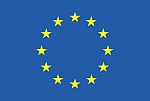short menu
About EUREC
National Information
Services
- Event Calendar
- Information for Researchers
- Training Materials
- Login for EUREC members

This network has received funding from the European Union.
Eurecnet - National Information: France
National Information: France (Last update: January 2023)
Short description of RECs system
There are 39 Ethics Committees in France. These Committees of Protection of Persons (Comités de Protection des Personnes, CPP) divide up into 7 regions all over the country. There are 5 to 6 CPPs per region (except for the Ile de France region around Paris which has 11 Committees) and they are all competent for the whole region. In addition, each committee has a national competence. According to the law of public health (Code de la santé publique : Chapitre III ; Articles L1123-1 à L1123-14) the Ethics Committees are responsible for decisions concerning interventional studies, standard of care studies, medical and other health products and further research areas (such as genetics or physiology).
The committee for the protection of individuals is composed of 28 members (14 members and 14 deputies) appointed by order of the director general of the regional health agency and divided into two colleges, as follows: - 1st college: eight persons with qualifications and in-depth experience in research involving the human being, including at least four physicians and two persons qualified by their competence in biostatistics or epidemiology; two physicians specializing in general medicine; two hospital pharmacists and two medical auxiliaries; - 2nd college: two persons qualified by their competence in ethical issues; four persons qualified by their competence in human and social sciences or their experience in the field of social action; four persons qualified by their legal competence and four representatives of associations of patients and users of the health system in accordance with the provisions of article L. 1114-1 of the public health code. Each committee includes among its members a person qualified in data protection. The committees usually plan their meetings 6 to 12 months in advance and make the meetings dates available on their website.
Organisation
The Ethics Committees’ competences range from ethical, scientific and methodological considerations (e.g. the protection of trial subjects, the protection of human rights, dignity and wellbeing of persons, benefits and risks ratio, the quality of research facilities, qualification and suitability of investigators, subject information and informed consent and the recruitment procedure).
The Competent Authority (CA) is responsible for the pharmaceutical conformity and quality of drugs, the security and safety of drugs, the security and conformity of methods and practices and the general security of subjects. In addition, the CA takes care of the exchange of information and the transfer of RECs opinions and CA authorizations.
Clinical trial sponsors have to submit their protocols both to the relevant regional Ethics Committee (CPP), and to the competent authority. These submissions are made through a dedicated portal, and the protocols are randomly distributed to the CPP. The authorisation to conduct a trial requires both the Ethics Committee (CPP) approval and the Competent Authority (CA) authorization.
The chair of the Ethics Committee (CPP) designates two rapporteurs, one of each college, and all proposals are reviewed by biostatistician. Each committee reviews 5 or 6 clinical trials forms and about 20 substantial amendments by meeting. Of course, the committee’s opinions must be justified. The sponsors can demand a re-examination of their protocols once. In case of a negative opinion the Ministry of Health may assign a different committee.
National Level
Besides the regional Ethics Committees there is also one National Consultative Ethics Committee (Comité consultatif national d'éthique, CCNE). France was the first country to create such a Committee. Its intended role is to single out issues arising out of progress in the life sciences and make public statements and recommendations. The issues of medically assisted procreation and experiments on humans were the first to be addressed by the CCNE. But its scope of investigation soon extended to other topics, such as research on human embryos, access to genetic information and the concept of consent. The National Committee (CCNE) has currently 45 members and its chair is appointed by the President of France.
Networking between RECs
The French law (March 5, 2012) has established the National Commission for Research Involving the Human Person (CNRIPH). Composed of 22 members, it ensures the coordination and harmonization of the operation of the CPPs, in particular by means of the recommendations that it draws up. In parallel, 20 years ago, the National Conference of CPPs (CNCPP) has been launched. This association gathers 35 out of the 39 CPPs, assembles its members at an annual meeting and exchanges information through its website. CNRIPH together with CNCPP organize training sessions for committee members, academic sponsors, investigators and patients.
